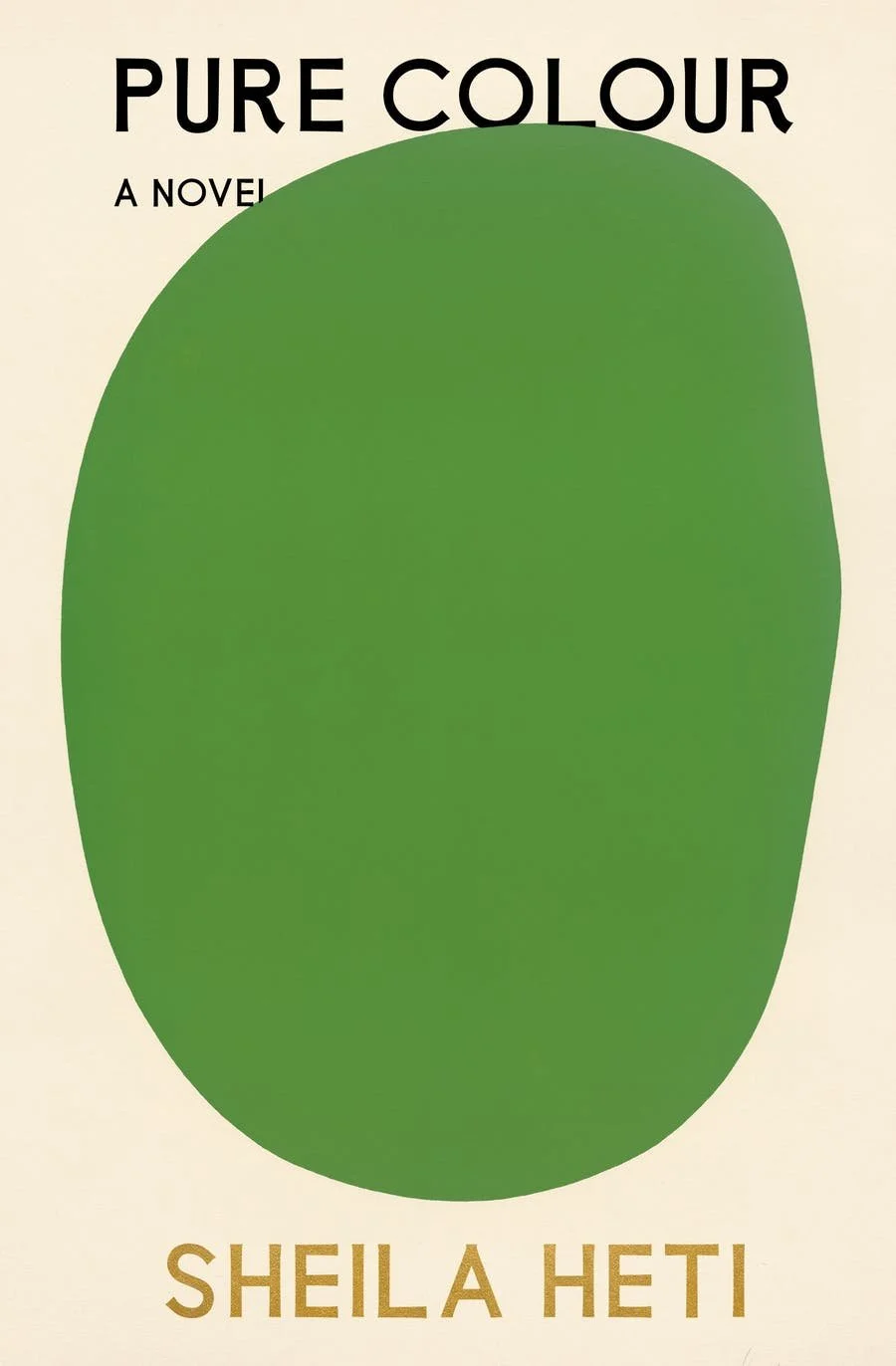Sheila Heti is the author of ten books of fiction and non-fiction. Her most recent novel is Pure Colour (Farrar, Straus & Giroux, 2022), which The Atlantic called “unabashedly metaphysical.” Her other books include Motherhood (Henry Holt & Co., 2018), named a Best Book of the Year by The New York Times, Vulture (#1 of 2018), NPR, Chicago Tribune, and others. Dwight Garner writing in The New York Times called it, “earthy and philosophical and essential.” Her novel, How Should a Person Be? (House of Anansi Press, 2010) was named one of the twelve “New Classics of the 21st century” by Vulture. It was a New York Times Notable Book, a best book of the year in The New Yorker, and was cited by Time as "one of the most talked-about books of the year.” Other books include the novel Ticknor (House of Anansi, 2005) described by Publisher’s Weekly as “deliciously intimate and clue-riddled as a Poe story;” and the short story collection, The Middle Stories (House of Anansi, 2004). Her next book is Alphabetical Diaries, to be published by FSG in February 2024. Heti was named one of "The New Vanguard" by The New York Times book critics, a list of fifteen women writers from around the world who are shaping the way we read and write fiction in the 21st century.
Her nonfiction includes New York Times bestseller, Women in Clothes (Riverhead, 2014), edited with Leanne Shapton and Heidi Julavits, which features the voices of 639 women from around the world, speaking about the wide range of motives that inform how they present themselves through clothes; and The Chairs are Where the People Go: How to Live, Work, and Play in the City (FSG, 2011), with Misha Glouberman, a “triumph...of “conversational philosophy,” according to The New Yorker. Her play, All Our Happy Days are Stupid, had sold-out runs at The Kitchen in New York and Videofag in Toronto. Her children’s book, We Need a Horse (McSweeney’s, 2011), was called a “subtle existential meditation” in Publisher’s Weekly. Her books have been translated into 21 languages. Heti is currently developing a new play called The Dug Out.
Discussing How Should a Person Be with Jackie Linton in Interview, Heti described the experience of writing it: “...it’s just such an intimate part of your life when you’re writing any book—I mean, you just have every possible thought you could possibly have, and every single feeling you could possibly have. You think you’re writing the most important book, you think you’re writing the most stupid book, and you never really know before it’s done that it’s going to be done. But when it was finished, I wanted it to have nothing that could be added or taken away from it—and be able to see it as a whole. But I also wanted it to be loose and painterly, and like life. Which is why you don’t necessarily know why some parts are there.”
Heti is the former Interviews Editor of The Believer magazine, and has conducted many long-form print interviews with writers and artists, including Joan Didion, Elena Ferrante, Agnes Varda, Dave Hickey and John Currin. Her fiction and criticism have appeared in The New Yorker, McSweeney’s, Bookforum, n+1, Granta, The London Review of Books, and elsewhere.
She has spoken at the Museum of Modern Art, the Tate Modern, the New Yorker Festival, the 92nd Street Y, the Hammer Museum, the Art Institute of Chicago, and at universities across North America, and at festivals internationally.
She is the founder of the Trampoline Hall lecture series, appeared in Margaux Williamson’s film Teenager Hamlet, and sporadically posts new episodes to her podcast, Podcast with Raisins. She lives in Toronto.












